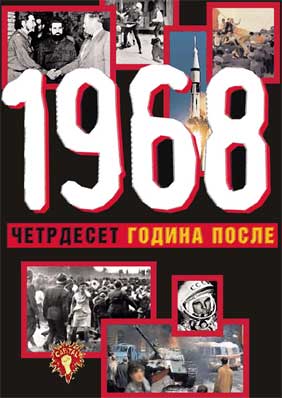Комадић Месеца за друга Тита (Посета посаде Апола 11
Југославији)
A Small Piece of Moon for Comrade Tito (The Visit of the Crew of Apollo 11 to Yugoslavia)
Author(s): Radina Vučetić
Subject(s): Cultural history, Diplomatic history, Political history, Post-War period (1950 - 1989)
Published by: Institut za noviju istoriju Srbije
Summary/Abstract: The space race between the USA and the USSR which had started with the launching of artificial satellite Sputnik in 1957 and which was continued by the founding of the American National Aeronautics and Space Administration (NASA) in 1958 marked 1960s. The Moon became the goal of the belligerent parties in the Cold War, which had to prove scientific, technical, ideological and political supremacy of one of the super-powers. The winner of this race was decided by the success of the American mission Apollo 11 and landing of the first man on the Moon. Aware of global success of their enterprise, the USA wanted to use propagandistically, as good as possible, the fame of their astronauts. For that reason, soon after the return of Apollo 11 it was decided that the astronauts go on a world tour, during which they visited 22 countries between September 29 and November 5, 1969. Yugoslavia was the only communist country they visited (between October 18 and 20, 1969) during this tour, and the behavior of the Yugoslav officials and enthusiasm of the masses in contact with the astronauts, showed that in balancing between the East and the West, when space was in question, Yugoslavia was inclined to the American side.
The matter of cooperation with the USA in the field of space research, in which Yugoslav scientists would also take part in the NASA program of satellite observation, was opened already in March 1966. Even before the success of Apollo 11 American orientation in the space race was perceptible in the writing of the Yugoslav press, which started emphasizing the importance of American endeavors to conquer the Moon, even before the American flag was hoisted there. The fact that Yugoslav president Tito, together with Romanian president Ceausescu, was the only chief of a socialist country who was put on the list of the chosen world leaders, whose statements, together with statements and messages of Eisenhower, Kennedy, Johnson, Nixon and messages of 73 world leaders were recorded on adisc the astronauts left on the Moon, testifies to Yugoslav sympathies for America in the space race.
The extraordinary publicity of the success of the mission of Apollo 11 in the Yugoslav public culminated during the astronauts’ visit to Yugoslavia. Although the press emphasized that the American success was an achievement for the whole mankind, some elements of the visit showed that, at least when the success of the Apollo 11 astronauts were in question, the Yugoslav side leaned to the American one in the space race. The reception of the astronauts, which according the writing of the American side, greatly surpassed the American expectations, testified to this. So did the masses on the streets and decorations the astronauts were awarded, which were a grade higher in rank than those conferred on the Soviet astronauts, as well as the overall attitude the Yugoslav authorities, journalists an public had toward this American success.
The political importance of this visit was obvious for both Yugoslav and American sides. The Yugoslav side, which has often balanced between the superpowers, sided openly with that part of the world which wholeheartedly celebrated American success in the conquest of space, and the American one was happy to prove that also in this endeavor it had a communist ally too.
Book: 1968 - четрдесет година после
- Page Range: 313-338
- Page Count: 26
- Publication Year: 2008
- Language: Serbian
- Content File-PDF

